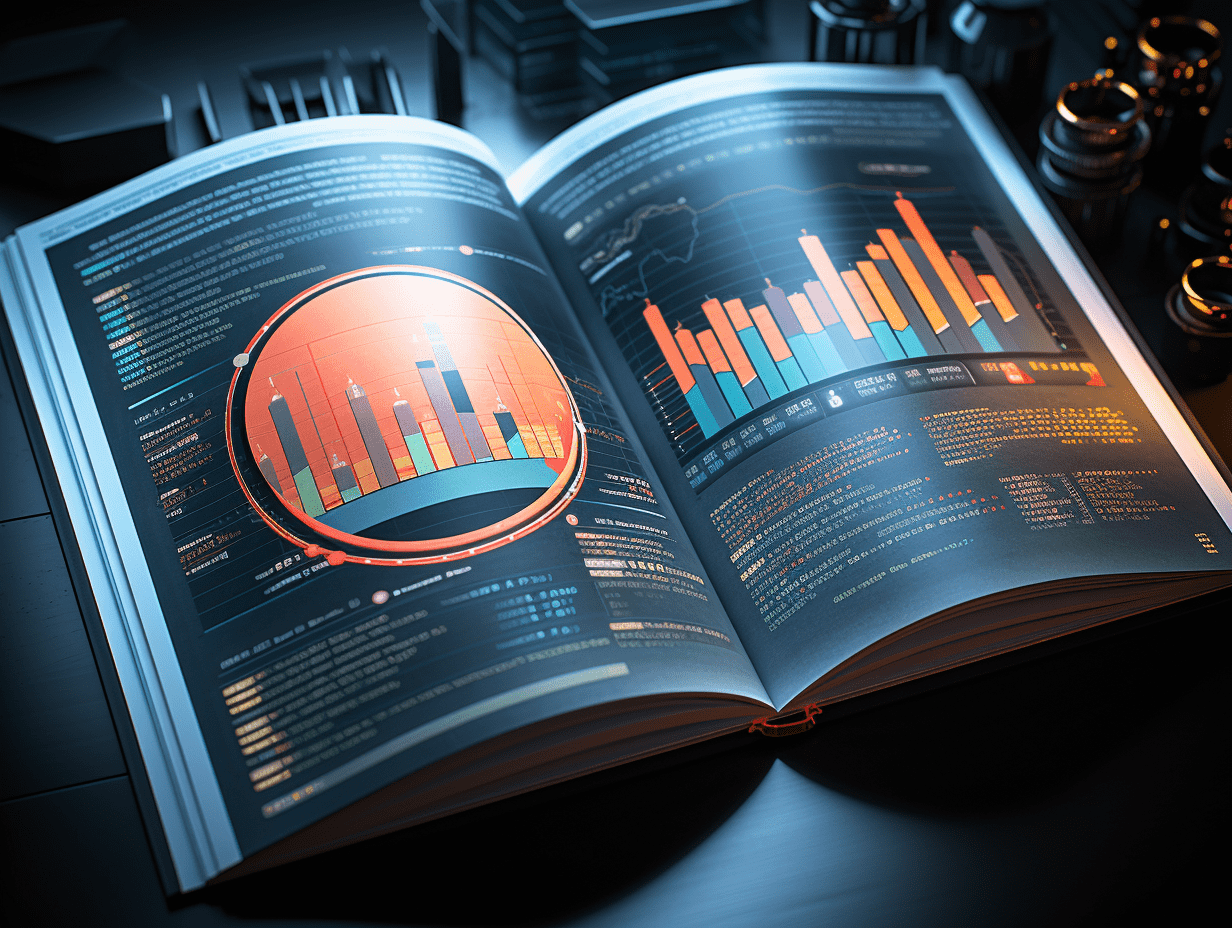
Overnight US stocks | The three major indexes saw a slight decline, and the volatility index once fell below 30.
On Tuesday, the US stock market saw a flat trend, which contrasted sharply with the significant fluctuations of the past few trading days. The Cboe Global Markets Inc Volatility Index (VIX), also known as the "fear index" on Wall Street, fell below 30 on Tuesday after reaching a high point of around 60 last week. The US announced an investigation into the import of chips and electronic products, paving the way for new tariffs.
The US Federal Government Gazette notified that the US Department of Commerce is conducting a national security investigation into the import of semiconductor technology and related downstream products. This official document requesting public comments on the investigation further confirms that although Trump said last Friday that many products in the chip and electronic product supply chain are exempt from "equal tariffs," the supply chain is still not excluded from his tariff plan.
The US Department of Commerce will investigate the "feasibility of increasing domestic semiconductor production capacity" to reduce dependence on imports, and whether additional trade measures including tariffs are "necessary to protect national security." This investigation covers a wide range, including chip components such as silicon wafers, chip manufacturing equipment, "downstream products containing semiconductors," etc.
[US Stocks] At close, the Dow fell 155.83 points, or 0.38%, to 40368.96 points; the Nasdaq fell 8.32 points, or 0.05%, to 16823.17 points; the S&P 500 fell 9.34 points, or 0.17%, to 5396.63 points.
[European Stocks] Germany's DAX30 index rose 345.62 points, or 1.65%, to 21252.41 points; the UK's FTSE 100 index rose 117.14 points, or 1.44%, to 8251.48 points; France's CAC40 index rose 62.28 points, or 0.86%, to 7335.40 points; Europe's Stoxx 50 index rose 58.26 points, or 1.19%, to 4969.65 points; Spain's IBEX35 index rose 308.60 points, or 2.45%, to 12880.00 points; Italy's FTSE MIB index rose 827.86 points, or 2.36%, to 35835.00 points.
[Asia-Pacific Stock Market] The Nikkei 225 index rose 0.84%, the KOSPI index in South Korea rose 0.88%, and the Indonesia Composite index rose 1.15%.
[Foreign Exchange] The US dollar index, which measures the dollar against six major currencies, rose 0.58% to 100.215 at the end of the currency market. By the end of the New York currency market, 1 euro exchanged for 1.1273 US dollars, lower than the previous trading day's 1.1346 US dollars; 1 pound exchanged for 1.3216 US dollars, higher than the previous trading day's 1.3189 US dollars. 1 US dollar exchanged for 143.16 Japanese yen, higher than the previous trading day's 143.04 Japanese yen; 1 US dollar exchanged for 0.8223 Swiss francs, higher than the previous trading day's 0.8144 Swiss francs; 1 US dollar exchanged for 1.3968 Canadian dollars, higher than the previous trading day's 1.3872 Canadian dollars; 1 US dollar exchanged for 9.8931 Swedish krona, higher than the previous trading day's 9.7737 Swedish krona.
[Cryptocurrency] Bitcoin fell by 0.85% to $83901.76, while Ethereum fell by over 2% to $1590.64.
[Metals] Spot gold rose by 0.57% to $3229.06 per ounce, holding steady above $3200 for the past three trading days, with a high rising to $3245.75 on Monday, an all-time high. COMEX gold futures rose by 0.64% to $3246.80 per ounce, continuing to fluctuate at a high level after reaching a historical high of $3263.00 last Friday.
[Oil] By the close of the day, light crude oil futures for May delivery on the New York Mercantile Exchange fell by 20 cents to $61.33 per barrel, a decrease of 0.33%; June delivery of London Brent crude oil futures fell by 21 cents to $64.67 per barrel, a decrease of 0.32%.
[Macro News]
The US Treasury Department is discussing whether to relax capital regulations on US Treasury bonds. Michael Faulkender, Deputy Secretary of the US Treasury Department, said officials are discussing a possible rule change targeting banks. With last week's decline in US Treasury yields, attention to the "supplementary leverage ratio" (SLR) regulation has increased. The record decline in US Treasuries has raised concerns similar to the market crash in March 2020. Any rule changes would still require approval from the Federal Reserve and other regulatory agencies, although the chair of the regulatory committee responsible for stabilizing American Financial Group, Inc. is appointed by the Treasury Secretary. Faulkender said at an event, "We are researching this and have started discussions."
US import prices fell before new tariffs, marking the first month-on-month decrease since September last year. Prices of imported goods in the US fell before the comprehensive tariffs implemented by Trump one month earlier. Data released by the US Department of Labor on Tuesday showed that import prices fell by 0.1% in March compared to the previous month, the first month-on-month decline in import prices since September last year. The Labor Department stated, "The decline in fuel import prices offset the increase in non-fuel import prices in March." As global oil and natural gas prices fell, including petroleum and especially natural gas, this month's import fuel prices fell, seen as a precursor to a global economic slowdown, with the main reason for the global economic slowdown being Washington's trade protectionism policies. Starting this month, many imported goods will be subject to new tariffs, which could lead to future price increases.
BlackRock, Inc.: US stocks are under short-term pressure but remain attractive in the long term. In a report, BlackRock, Inc.'s investment research institute strategist said that the US stock market may continue to be under pressure in the short term, but remains attractive in the long term as it will benefit from the development of artificial intelligence, robust corporate earnings, and the strong US economy so far. Policy uncertainty may drag down the US stock market in the short term. However, we believe that the US stock market can regain its global leadership. Nonetheless, risk assets are expected to be volatile.Momentum is expected to continue, asset prices may experience a "sharp reversal".Canadian government: Continued plant in Canada will receive 100% tariff exemption. The Canadian government stated that it will allow automotive manufacturers to import some cars and trucks made in the United States tariff-free, as long as these companies continue to produce vehicles in Canada. This move will come as a relief for companies like General Motors Company and Stellantis, which have assembly plants in Ontario but still export a large number of vehicles from the United States to Canada. The Canadian government also announced a six-month tariff deferral on products imported from the United States for manufacturing, processing, food, and beverage packaging in Canada, as well as certain items related to public health and national security objectives. Canada currently imposes a 25% retaliatory tariff on approximately $60 billion Canadian dollars (approximately $43.3 billion USD) worth of U.S. products, and further tariffs on some U.S.-made cars.
[Stock News]
Before the epic rebound in U.S. stocks, a close ally of Trump sold U.S. Treasury bonds to buy Tesla, Inc. (TSLA.US). Before U.S. President Trump announced a 90-day postponement of tariffs on most countries, triggering an epic rebound in U.S. stocks, Federal Congressman Marjorie Taylor Greene sold U.S. Treasury bonds and bought stocks in Amazon.com, Inc., Blackstone Inc., and Tesla, Inc. The transactions were disclosed in her financial report last week. These trades are part of Greene's investment shift and were carried out on April 8th and April 9th. Congressional Democrats have called for an investigation into whether individuals with ties to Trump have profited from the timing of the tariff postponement announcement.
Foreign media: Amazon.com, Inc. (AMZN.US) inquires sellers about tariff impact. According to a copy seen by the Wall Street Journal, Amazon.com, Inc. recently sent emails to third-party sellers, inquiring about how tariffs are affecting their business, including topics from procurement to pricing strategies and international sales. The email stated, "We continue to deal with various tariff policies. The platform believes that it is essential for sellers to share their experiences and strategies." Amazon.com, Inc. also inquired about the use of the company's logistics services by merchants, as many sellers use its logistics services to package and ship products.
XPeng, Inc. Xpeng announced that its AISiasun Robot & Automation Iron will begin mass production in 2026. XPeng, Inc. announced that its AISiasun Robot & Automation Iron will achieve industrialized mass production in 2026 and has already started training at its factory in Guangzhou, China. Iron features a 1:1 bionic design, standing at 178 cm tall and weighing 70 kg, with 62 active degrees of freedom and 22 movable degrees of freedom. In terms of intelligence, Iron is equipped with a Turing AI chip with 3000T computing power and a 720 panoramic vision system for agile movement.
Trump: Will expedite issuing all necessary licenses to NVIDIA Corporation (NVDA.US). NVIDIA Corporation has pledged to invest $500 billion in the U.S. to produce AI servers within four years, and in response, Trump posted on Truth Social, "NVIDIA Corporation has committed to investing $500 billion to build artificial intelligence supercomputers, and only in the United States. This is exciting news. All necessary licenses will be expedited and quickly issued to NVIDIA Corporation, as well as to all companies committed to being part of America's golden age."
[Major Bank Rating]
JPMorgan Chase: Lowered the target price for Taiwan Semiconductor Manufacturing Co., Ltd. Sponsored ADR (TSM.US) from NT $1500 to NT $1300 and maintained a "neutral" rating.
RECOMMEND
©️2013 - 2025 GMT EIGHT Holdings. All Rights Reserved.
Contact: [email protected]


